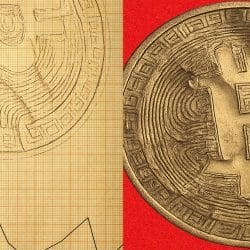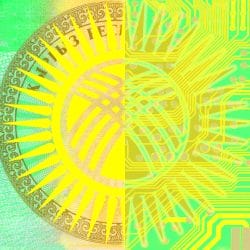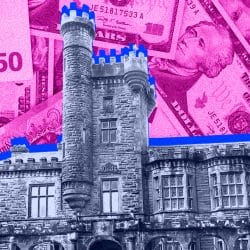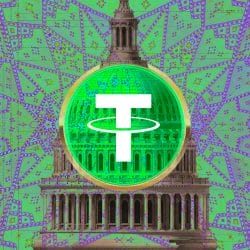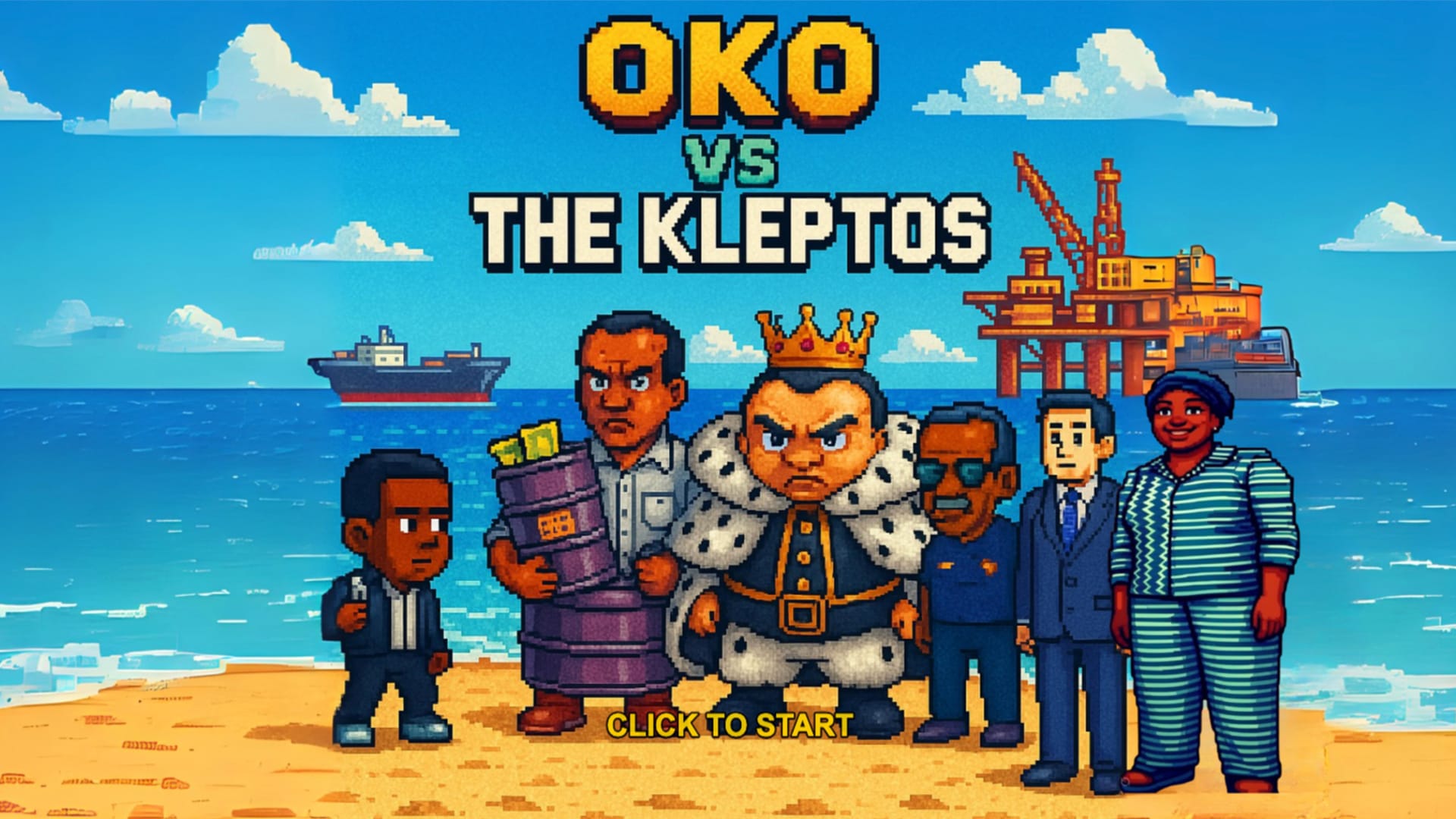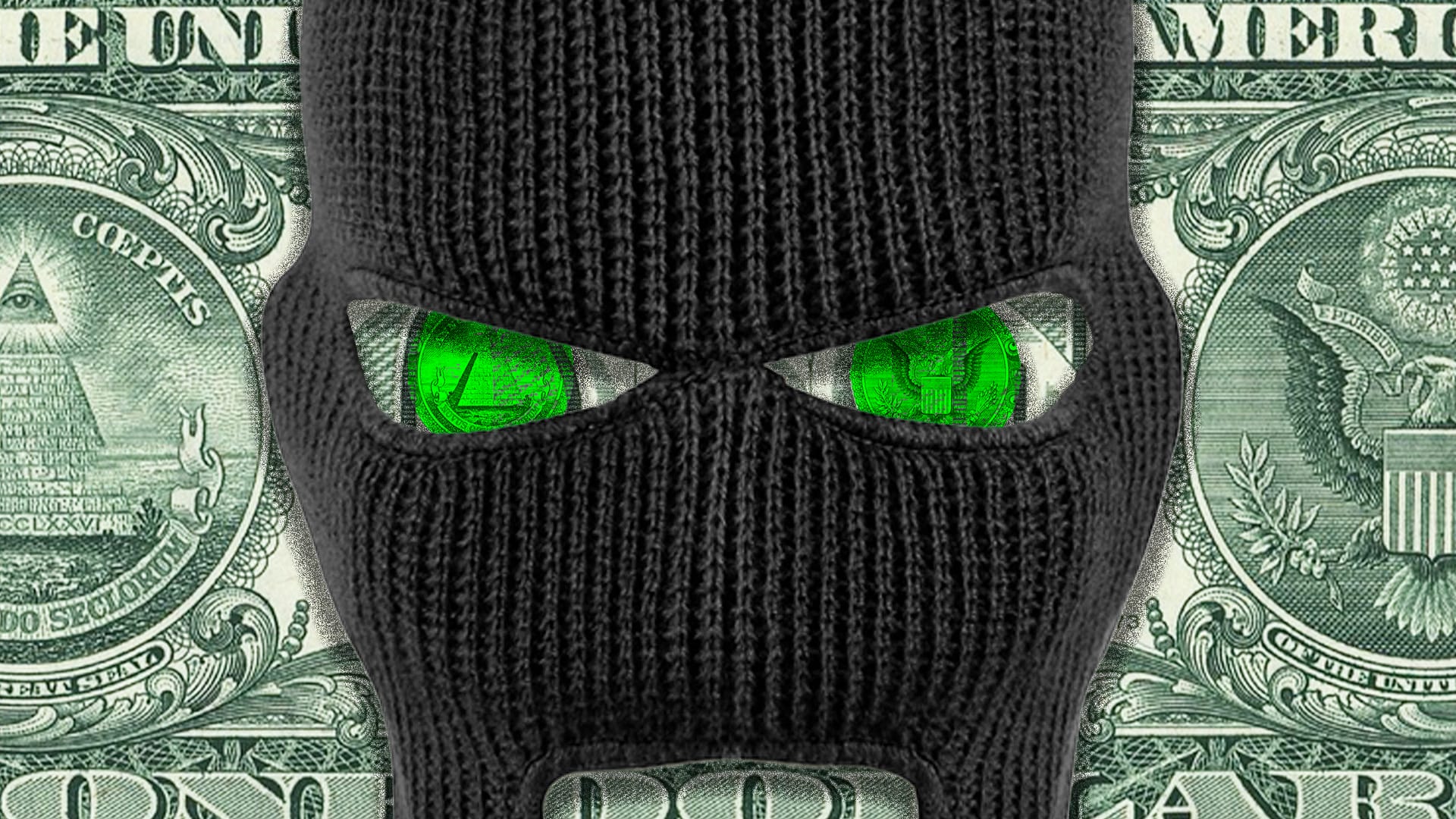Dinosaur bones, lottery tickets & upside-down skyscrapers
I am often rude about how utterly predictable financial criminals are in what they choose to buy – large watches, gold-spattered handbags, ugly yachts, etc – so I want to give a very small amount of credit to Su Binghai, a money launderer with an imagination. Okay, so he bought nine apartments in London, spending about $21 million just a week after he evaded police in Singapore. And, sure, he abandoned a collection of supercars in Singapore, all of which is tremendously dull. But then among the assets seized by Britain’s National Crime Agency (NCA) were “dinosaur remains, between 145 million and 157 million years old… of a mother and baby Allosaurus, as well as a Stegosaurus.” Dinosaurs! Aren’t they gorgeous? So much more beautiful than a boring old car.
The extinct mega-beasts were sold at a Christie’s auction last year for around $15 million, but are now in a warehouse, presumably ready to be resold, (unless the NCA plans to keep them. I can see the appeal of having something so magnificent as a dinosaur skeleton as a centrepiece in your house, although I do worry a little about the amount of dusting required, which may be why other money launderers have not invested in fossils. “I doubt that any of us will be dealing with one of these again,” said Judge Gavin Mansfield during the hearing. What a shame.
The value of the properties and fossils is a tiny fraction of the amount already recovered in Singapore in this case, which is said to have involved more than $3 billion, though it is troubling that many of the fugitives involved appear to have won effective immunity from prosecution in return for surrendering their assets.
Which cryptocurrency was involved in the scheme, I hear you ask? Well, funnily enough, it was Tether’s USDT like it always seems to be. Involvement in multiple scams has not been holding Tether back. Quite the reverse; in the first nine months of the year, it made $10 billion in profits, and expects to make $15 billion in 2025 as a whole. If Tether is not the most profitable company per employee in the world (it employs about 200 people), I’d like to know what is.
One of the few people who appears not to have been using Tether to hide illicit wealth was the former EU Justice Commissioner Didier Reynders. Though maybe he should have been. Reynders was recently charged with money laundering in Belgium in perhaps the strangest scheme I’ve read about this year. Reynders spent nearly $60,000 on lottery tickets in a single year.
Now, lotteries have been used by financial criminals for a long time. My favourite money laundering approach ever was one used in Puerto Rico in the 1980s when criminals would buy lottery tickets at a premium in cash, then (unconvincingly) explain to the authorities that their wealth was simply the result of weekly outbreaks of good fortune.
According to investigators, however, Reynders was doing something else. He was spending unusual amounts on lottery tickets and keeping the winnings. Why is this strange? Unlike gambling in a casino, lotteries are not a good way to launder money, because they distribute as prizes less than two thirds of what people spend on tickets, so you lose a huge amount on the trade. It’s really not very clever and, clearly, the unusual spending pattern raises the authorities’ suspicions. Reynders denies laundering money, and says he was just using private wealth. Whatever happened, he has a lot to explain.
The thankless task of crypto regulation
Reynders may not have tried to launder money via crypto, but many financial criminals do. And over in Washington, DC, regulators have got to do the boring-but-important work of figuring out how exactly the new GENIUS act controlling stablecoins will be implemented in practice. So credit to Transparency International U.S. for attempting to bend things in the direction of sanity. “A well-implemented framework can both support responsible innovation and prevent the kinds of corruption and financial crime that erode trust in financial systems and global markets,” it wrote in a letter to the Treasury Department.
Subscribe to our Coda Currents newsletter
Weekly insights from our global newsroom. Our flagship newsletter connects the dots between viral disinformation, systemic inequity, and the abuse of technology and power. We help you see how local crises are shaped by global forces.
Bitcoin prices may have taken a bit of a dip of late (no doubt irritating Donald Trump), but the crypto enthusiasm stoked by the White House shows no sign of abating. Senate Democrats sent a letter to the attorney general after Trump’s pardon of former Binance CEO Changpeng Zhao with a killer final question/essay prompt: “Do you believe President Trump’s substantial business ties to Mr Zhao influenced his decision to issue a pardon? Explain.”
Richard Teng, who now runs Binance, has denied that his company supported Trump’s own (largely moribund) stablecoin USD1 to curry favour with the first family on his predecessor’s behalf. But considering quite how much money the Trumps have made this year (Trump’s net worth has risen by $3 billion, according to Forbes), it seems unlikely they’ll concern themselves overmuch with the rules, let alone the complex, detailed rule-making around the GENIUS act. On the one hand, this leaves the field open for organisations like TI-US to push for good regulations; on the other, Trump will do what he wants, regardless of the regulations.
The Neom debacle
Trump, though, is not yet a law unto himself. Unlike, say, the Saudi royals. I have a slight obsession with Neom, Crown Prince Mohammed bin Salman’s pet development involving a ski resort, a superyacht harbour and The Line, a ludicrous mirrored linear city which a gazillion architects have been designing at a gigundous profit. Anyway, thanks to the FT, we have a deeper dive into this vainglorious horror show than we’ve ever had before.
There are many, many cars in this pile-up: the 30-storey building that would supposedly hang from the top of an arch over the harbour, despite architects warning that it would inevitably fall on everyone’s yachts below; the “hundreds of shuttle cars running back and forth” to pick up the poo because normal sewage systems couldn’t be made to work; the fact no one realised that buying more than half of the world’s steel each year to build Neom would affect steel prices; the airport shuttle envisaged without any room for luggage; the giant pumps required to circulate water in the giant marina; the disaster in store for migratory birds faced with a 500- metre high, 170-km wide mirror and so on and so forth.
“I was in a conversation one day with two physicists, quantum physicists,” says Antoni Vives, then Neom’s chief urban development officer, in a documentary about The Line. “One of them looks at the other and looks at me, and says: ‘you know what, perhaps it’s the time of the poets now. We need poets’.” No, Antoni, we need satirists. Or maybe sedatives.
A version of this story was published in this week’s Oligarchy newsletter. Sign up here.
Related Articles
Who Should Profit from Crypto?
Where kleptocrats go house-hunting
The post Dinosaur bones, lottery tickets & upside-down skyscrapers appeared first on Coda Story.


